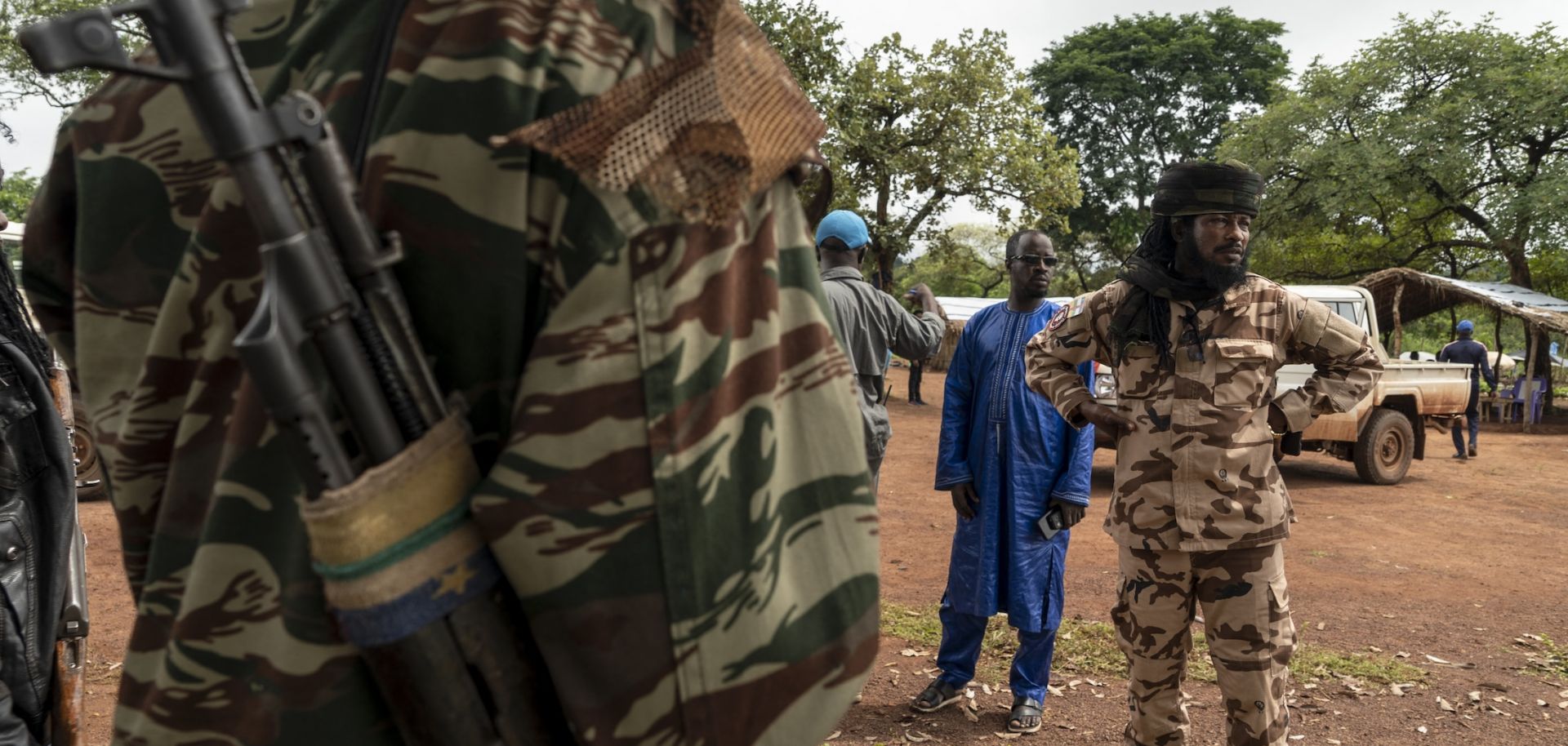In the Central African Republic (CAR), a recent peace deal will open the door to improved security and stability, but it faces myriad pitfalls and contentious elections later this year could result in violence; separately, Russian paramilitaries are set to remain in the country, even if their role changes. On Aug. 11, President Faustin-Archange Touadera claimed significant progress in the disarmament, remobilization and reintegration (DDR) process since his government reached a peace agreement with key rebel groups in April. The agreement, mediated by Chad and made official in July, has resulted in the formal dissolution of both the Union for Peace in the Central African Republic (UPC) and Return, Reclamation, and Rehabilitation (3R) after the groups agreed to cease hostilities following a rebellion that began in 2012. Under the new deal, the CAR government committed to reintegrating eligible fighters into state security forces and enrolling others in DDR programs --...

